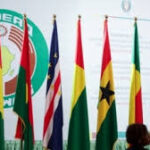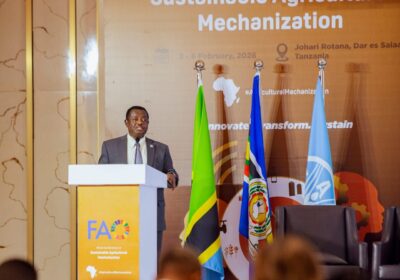Countdown in West Africa: Mali, Burkina Faso, and Niger Face Uncertainty After ECOWAS Exit.
By Raymond Enoch
In a dramatic realignment of West African geopolitics, Mali, Burkina Faso, and Niger have officially severed ties with the Economic Community of West African States (ECOWAS) as of January 29, 2025.
This historic gambled move, marked the end of their decades-long membership, underscores their growing discontent according to the three countries, with so to say ECOWAS policies, which they alleged have strayed from the bloc’s founding principles and fallen under undue foreign influence.
In response to their withdrawal, the three nations have swiftly established the Alliance of Sahel States (AES). Analysts view this as a bold gamble towards regional self-reliance. This newly formed confederation prioritizes collective security, economic cooperation, and political integration, aiming to combat shared external threats, particularly jihadist insurgencies that have destabilized the Sahel for over a decade.
Despite their departure, ECOWAS has introduced measures to minimize disruptions. Member states are directed to continue recognizing passports and identity cards bearing the ECOWAS logo from these nations, ensuring that citizens can still travel, reside, and conduct business within the region. Similarly, trade and investment flows remain active under the ECOWAS Trade Liberalization Scheme (ETLS), preventing immediate economic isolation.
This provision also extends to 135 ECOWAS Commission staff members from the three countries, who now face job uncertainty as their nations are no longer part of the regional bloc.
The AES military governments did not appear to fully anticipate the broader implications of their decision, which include:
Loss of Employment & Benefits: Citizens of the three countries working in ECOWAS institutions face layoffs, contract terminations, or loss of privileges.
Diplomatic Reassignments: AES nationals serving in ECOWAS diplomatic missions may be recalled or reassigned.
Limited Access to ECOWAS Programs: Businesses and entrepreneurs from these countries could lose access to ECOWAS grants, funding programs, and economic incentives.
Higher Trade Costs: Potential customs duties and tariffs may increase the cost of goods and services between AES countries and ECOWAS members.
Regional Security Realignment: ECOWAS-led peacekeeping missions may lose cooperation from AES nations, affecting joint military efforts against terrorism in the Sahel.
A Shift in Military and Strategic Alliances
Security concerns lie at the heart of the AES formation. The three nations have pledged joint military operations and intelligence-sharing to counter the growing jihadist threats. In a significant pivot from traditional Western alliances, AES nations have engaged in military partnerships with Russia, Turkey, and Iran to enhance their defense capabilities—further signaling a shift in regional security dynamics.
Economic Uncertainty and Inflation Risks
The break from ECOWAS raises serious economic questions. While temporary trade agreements are in place, the long-term consequences remain uncertain. Experts warn of rising transaction costs, supply chain disruptions, and inflation risks as the three nations seek alternative trade deals. To counter these challenges, AES leaders are exploring new economic partnerships and regional production strategies to ensure resilience.
A Lawful Exit, Not a Sudden Rift
Amid swirling narratives, it is crucial to clarify that the withdrawal was executed in full compliance with ECOWAS regulations, following a one-year formal notice period. Contrary to claims of an abrupt break, diplomatic channels were engaged, but fundamental disagreements led to the ultimate separation.
As the dust settles, the focus remains on whether ECOWAS and AES can navigate this new reality through dialogue and cooperation, ensuring stability, security, and economic progress for the people of West Africa.










